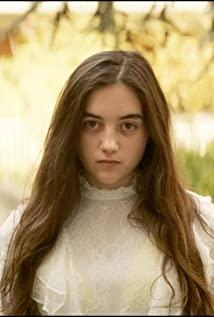Copy a paragraph in a discussion thread replying to someone else. Put forward a personal understanding of the emotional line of this film being questioned as "progressing too fast" and "not real enough". —————— The original post owner mainly raised two questions: 1 Is the development of the two people too fast? 2 The growth of these two people is based on these beautiful appearances, less human reality and more artistic beauty. They should be discussed together. The best part about this film is how you interpret this part of it. It's a pity that it can't be deciphered or simply considered to be a love line that is not convincing. —————— There are no surprises at the beginning of the film—two women with high knowledge and strong personalities in the backward environment of the times—the heterogeneity of the times, acquainted with each other and began to understand each other. The middle is omitted. Then an important thing that has been running through the whole film since its appearance appeared - "Orpheus". To recap the story: The man begged the Nemesis of the underworld to resurrect his wife who was innocently bitten by a snake, and his speech moved them, and they agreed, but only on the condition that they could not turn back before returning to the world, but at the border , the man who was afraid of losing his wife and eager to see her face turned back. So the wife dies again and can never be resurrected. The follow-up to this story is that men never talk about love for life. Review the key dialogue: the maid said, it doesn't make sense, why did he turn back. The painter said, "Maybe he just made a choice. He chose to leave memories of her. What he made was not the choice of the lover, but the choice of the poet." The lady showed a pondering expression, paused for a while, and finished reading The story, and said: "Maybe she said something behind her back, look back." After that, it was confirmed by the eyes of the bonfire that they kissed for the first time and did it for the first time. Between these two firsts, the painter saw for the first time the illusion of the young lady wearing a wedding dress. Well, looking back, what key information did they communicate through this Orpheus? That is, the painter asked a question, and the lady answered it by implying: "Let's just leave memories" - without taking into account the responsibilities that the lover needs to bear, I allow you and I to have fun. The young lady and the painter have long known that they will be separated. They choose to taste this love that is more painful than sweet before the wedding day, and the more knowledgeable people are, the more maddening they can get from this beauty that is bound to end. Pleasure (Additional reading: "Paradise Lost", "How to evaluate Zhou Guoping's attitude towards Niuniu's disease and the psychology it reflects?"). In other words, the motivation for the two of them to start this relationship is very bad. Having said that, I think the first question raised by the layer master about the emotional line has been solved. Then answer the second one, the truth of the person is missing, because the relationship between the two is not deep. The important conversation before leaving is as follows: The painter said, I will destroy this painting too, because it is for the young lady's marriage. She made a straight confession! But, is the lady moved? She was speechless at first, and then got angry, she said: "You started complaining after you had me?" "You are not on my side" "You blame me for my future marriage""I thought you would be brave . "The painter replied: "I thought you would be brave." The lady said: "You found me docile, and what's worse, you imagined that I would cooperate, and you assumed that I would be happy . "The painter said:" This will make me give up. "The lady said: "As long as it can make you feel at ease, I'm happy or not for you to assume. But don't think I'm at fault. You expect me to resist . "The painter said:" Yes. "The lady said: " Then do you want me to resist? "The painter said: "No. "The "Orpheus" segment and this segment are the best literary dramas in the whole film. In "Orpheus", they implied that the other party was not responsible. After a short time together, they were a little reluctant, but both pointed to The other party is responsible. The painter means that since you hate this marriage and you like me, why don't you resist. If you don't resist, then I will acquiesce that you like this marriage. What the lady means is, you confess with a straight ball, but you What can you give me? Know the time in the synopsis of the film. In this period in France, homosexuality was a serious crime that was punishable by death. You made a straight confession, but you didn't promise how to protect us. How can I trust you? Although I don't like this marriage? The end of the film is also in line with the development of "Orpheus": the stranger, the man who broke into the underworld, looked back at his woman, and his woman died a second time. He Leaving memories and never talking about love for life. We also saw that the unmarried painter whose professional level continued to rise met the married lady again, but the lady did not find her coming. ————— PS end with some private goods. I discussed a similar issue with a friend when I first entered college. If sexual minorities face too many obstacles to spend their lives with their partners, people who don't want to distort their will anyway want to have a responsible relationship. Very difficult. If you want to be rational, your external performance may be simply judged as scum. —————— PS2. Thank you Duanmu Sanya and all those who have written analytical essays for witchers for teaching me to read comprehension.
View more about Portrait of a Lady on Fire reviews











